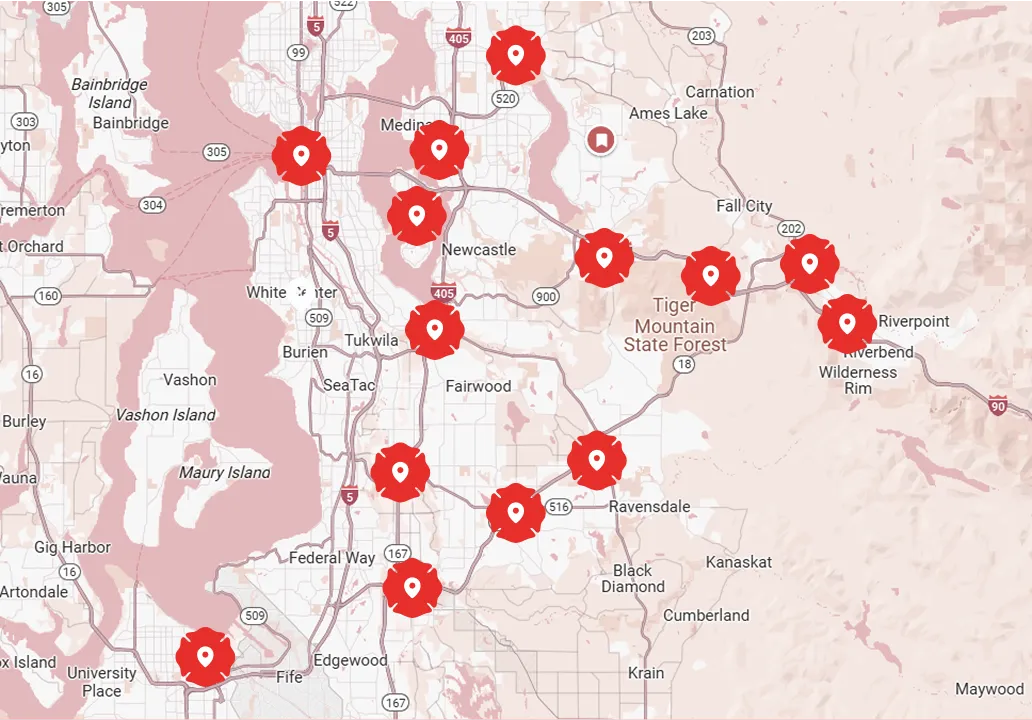Out of State Moving Companies in Kent, WA
.webp)
Interstate Moving Services in Kent, WA provide a regulated and well-coordinated relocation experience handled by licensed, insured professionals. The service covers all major long-distance move types while addressing Kent-specific factors such as route planning, access logistics, and timing challenges. Movers follow a structured process that includes pre-move surveys, professional packing, secure loading, organized transit coordination, and careful delivery—all managed through a single point of contact. Homeowners receive clear guidance on pricing structures, including binding, non-binding, and not-to-exceed estimates, as well as accessorial fees and insurance options. With proper preparation, documentation, and scheduling, Kent residents can enjoy a smooth, efficient, and stress-free state-to-state move.

Out of State Moving Companies in Kent, WA
Moving from Kent, WA to another state is more than loading boxes into a truck — it’s a regulated, logistics-heavy process that needs coordinated crews, clear paperwork, and weather-aware planning. For families and businesses leaving the Seattle-Tacoma metro area, an experienced out-of-state moving company that understands interstate licensing, transparent long-distance pricing, and local Kent challenges will save time, money, and stress. Below is a practical, decision-focused guide to what a professional interstate mover provides and how to prepare for a smooth state-to-state transition.
Common out-of-state move types and Kent-specific challenges
- Long-distance household moves to other Pacific states, the Midwest, or across the country.
- Corporate relocations and office moves that require phased scheduling and inventory control.
- Apartment-to-apartment or single-family home moves where parking, stair access, or elevators in Kent neighborhoods matter.
- Moves that require ferries or port access when routing through Puget Sound islands or coastal destinations.
Kent’s location in the Seattle-Tacoma metro means heavy traffic on I-5 and I-405, seasonal rain and mud, and occasional narrow driveway or street access in older neighborhoods. These factors affect scheduling, crew size, and truck staging — and an experienced interstate mover will plan for them.
Licensing, insurance and compliance for interstate moves
Interstate moving companies operate under federal regulation. Look for carriers that can explain:
- Federal registration and oversight (USDOT/FMCSA) and evidence of authority to transport household goods across state lines.
- Written estimates and a clear Bill of Lading that becomes your contract of carriage.
- Valuation options and insurance: released value (minimal coverage) versus full value protection (broader coverage). Know the difference and how claims are handled.
- Proper inventory and weight documentation. Interstate moves are frequently priced based on the shipment weight and distance, and movers should provide weight tickets or a clear method of verification.
A compliant mover will provide these disclosures in writing and explain any accessorial charges (stairs, long carries, elevator reservations, packing services) before moving day.
How an interstate move typically works
- Pre-move survey and written estimate: on-site or virtual assessment to identify access constraints, large items, and packing needs.
- Packing and preparation: professional packing for delicate and weather-sensitive items; labels and an itemized inventory list.
- Loading and origin documentation: signed inventory and weight verification are recorded before the truck departs Kent.
- Transit and communication: estimated transit times, tracking or scheduled check-ins, and coordination with destination crews.
- Delivery and unpacking: coordinated delivery window, inspection, and signing off on the Bill of Lading and inventory.
A reliable company will assign a single coordinator to keep you updated from origin to delivery and facilitate communication between origin and destination crews.
Transparent pricing for longer moves
Interstate pricing depends on several predictable factors:
- Shipment weight and total distance traveled.
- Access conditions at origin and destination (stairs, long carries, parking permits).
- Packing services, crating for specialty items, and additional insurance coverage.
- Seasonal demand and fuel surcharges.
Estimate types to understand:
- Binding estimate: total price guaranteed unless you add services or items not included in the estimate.
- Non-binding estimate: final charges can change based on actual weight and services used.
- Binding not-to-exceed: you pay the lower of the actual weight-based charge or the binding estimate.
For Kent residents, expect movers to account for potential traffic-based delays and regional weather protection, which sometimes adds modest accessorial fees. A reputable mover will show how each element contributes to the final price and provide written documentation.
Coordination between origin and destination crews
Interstate moves often involve different crews at pickup and delivery. Effective coordination includes:
- A single point of contact who manages timing, special handling, and any mid-transit updates.
- Clear transfer procedures when shipments switch carriers or trailers at a terminal.
- Confirmed delivery windows and contingency plans (e.g., storage-in-transit if the destination address isn’t ready).
- A documented plan for handling exceptions (damage, missing items, or delivery delays).
Smooth coordination minimizes double-handling and reduces the risk of damage or missed delivery windows.
Customer guidance and checklist for a smooth state-to-state move
- Gather critical documents: photo ID, recent utility bills, lease or deed, and any vehicle title/registration paperwork you’ll need at destination.
- Change of address: submit to USPS and update banks, insurers, and government agencies. Note: Washington residents typically need to transfer vehicle registration and driver’s license within the new state’s required timeframe (check the destination state’s rules).
- Pack or personally transport valuables, medications, important documents, and irreplaceable items like family photos.
- Avoid packing hazardous materials: aerosols, propane tanks, paints, batteries, and other dangerous goods are restricted for interstate movers.
- Special items: declare pianos, antiques, artwork, and plants ahead of time. Some states restrict plants and soils across state lines; movers can advise whether shipping or personally transporting plants is best.
- Prepare for weather: Kent’s rainy climate means water-resistant packing, extra protective wrapping, and floor protection during loading and unloading.
- Reserve parking and permits if needed: large trucks require space, and certain neighborhoods or complexes may require advance notification or permits.
What to expect on delivery and how to handle issues
- Delivery windows are typically scheduled in advance; interstate deliveries can be less precise than local moves due to distance and road conditions.
- Inspect items against the inventory at delivery and note any damage or missing items on the Bill of Lading before signing.
- If an item is damaged or missing, movers will outline the claims process; timely reporting and retaining the original packing materials (if possible) speeds resolution.
- Storage-in-transit is common for long moves; ask about climate-controlled options, especially for sensitive items in the Pacific Northwest’s humid conditions.
Why experienced interstate movers matter for Kent residents
Interstate moving companies familiar with Kent and the Puget Sound region understand local access, typical weather-related packing needs, and the traffic patterns that affect timing. They also ensure compliance with federal interstate regulations, provide transparent written estimates for long-distance charges, and coordinate origin and destination crews to make the move predictable.
A well-executed interstate move reduces risk, protects belongings, and keeps the relocation on schedule — important when moving families, valuable items, or time-sensitive business equipment across state lines. Preparing with the right documentation, a clear inventory, and realistic expectations about transit windows will help your move go smoothly from Kent to your new home state.

